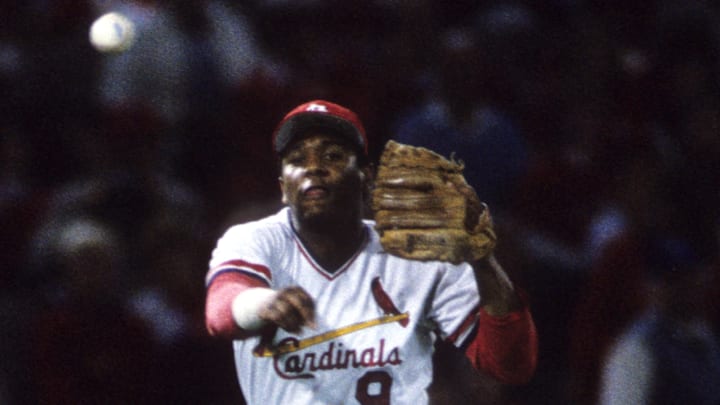7. Ron Cey, 1978 Los Angeles Dodgers. Having lost the 1977 World Series to New York, Cey’s Dodgers badly wanted to claim the rematch, and they made a good start of it with an 11-5 Game One win. But the Yankees held a 2-1 lead entering the bottom of the sixth inning of Game Two at Dodger Stadium.
Then with two on and two out, Cey got a 2-0 Catfish Hunter pitch to his extreme liking and deposited it deep into the left field seats for a three-run home run and a 4-2 Dodger lead. Two Dodger relievers took it from there, wrapping up a 4-3 victory and a two-games-to-none Series edge.
Unfortunately for the Dodgers, that edge did not hold. Thanks to 22 RBIs from Reggie Jackson, Thurman Munson and Bucky Dent, the Yanks swept the final four games to claim the Series in six. Cey Win Probability Added: 46 percent.
t-5. Tris Speaker, 1912 Boston Red Sox. More than a century after it was played, the 1912 World Series continues to rank among the classics, and Speaker’s Game Two play is one of the reasons why. Coming off Smoky Joe Wood’s 4-3 victory in Game One, Boston grabbed an early 5-2 lead against John McGraw’s Giants, then lost it on three eighth inning Giants runs. Those runs sent the game into extra innings when an error undermined Christy Mathewson’s pitching work.
After New York scored a 10th inning go-ahead run, Mathewson returned to the mound to try to wrap up a Series-evening win. Speaker would have none of it. With one out, he sent a Mathewson pitch on a line to deepest center field at the brand new Fenway Park, barreling around third and hoping for a game-tying inside-the-park home run. The relay from shortstop Art Fletcher beat Speaker, but he collided with catcher Chief Meyers, jarring the ball loose.
Speaker was credited with a triple and Meyers charged with an error allowing the tying run to score. Two innings later, with darkness taking over in Boston, the game was declared a draw. Boston eventually won in eight games. Speaker Win Probability Added: 47 percent.
t-5. Enrique Hernandez, 2017 Los Angeles Dodgers. The home-standing Dodgers claimed Game One of its 2017 showdown with the Houston Astros, and led 3-2 entering the ninth inning of Game Two, only to see Marwin Gonzalez even the score with a home run off Dodger relief ace Kenley Jansen.
Then to make matters worse, Jose Altuve and Carlos Correa hit back-to-back home runs in the 10th to put Houston ahead 5-3. Yasiel Puig narrowed the gap with a leadoff home run of his own in the bottom of the 10th, then Astros ace Ken Giles settled down to try to preserve the one-run lead.
He fanned Yasmani Grandal and Austin Barnes before walking Logan Forsythe and wild pitching him into scoring position. It was all the help Hernandez needed. On a 3-1 count, he grounded a seeing-eye single into right field allowing Forsythe to score the tying run.
The game continued into the 11th, Houston winning 7-6. The Astros claimed the Series in seven games. Hernandez Win Probability Added: 47 percent.
